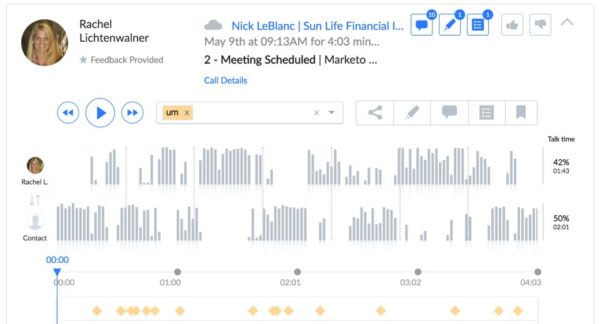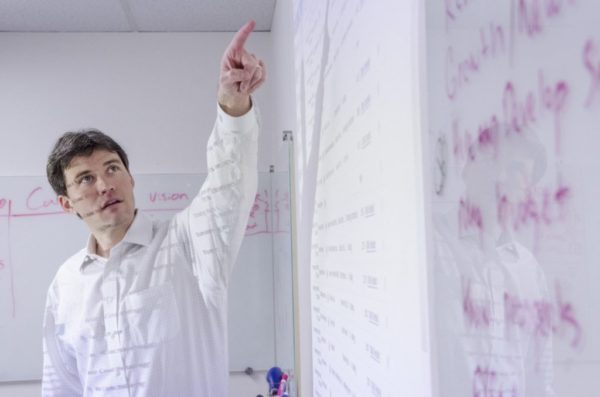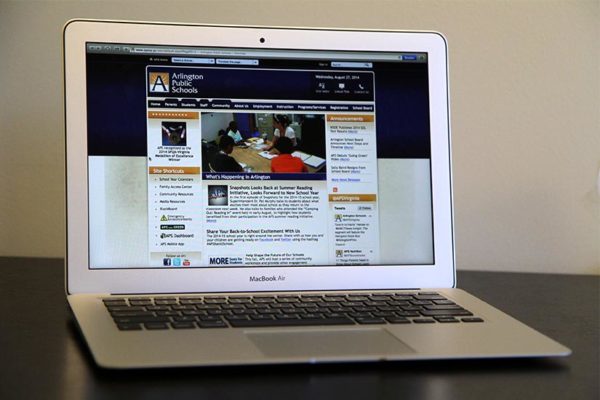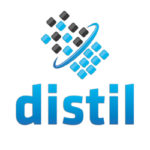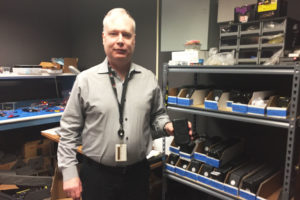Sponsored by Monday Properties and written by ARLnow.com, Startup Monday is a weekly column that profiles Arlington-based startups and their founders, plus other local technology happenings. The Ground Floor, Monday’s office space for young companies in Rosslyn, is now open. The Metro-accessible space features a 5,000-square-foot common area that includes a kitchen, lounge area, collaborative meeting spaces, and a stage for formal presentations.
A little over two years after it launched, Rosslyn-based startup Hungry still feels like a small company.
These days, founder Eman Pahlevani is as likely to answer the company’s main phone line as anyone else in the 30-person office. If everyone else is busy, Pahlevani says sometimes he’ll even get up and go run a delivery.
But the small feeling belies some remarkable successes over the last two years. Last summer, the company announced plans to expand into Philadelphia. Riding high on that growth, Pahlevani said the company is planning on expanding into five new cities in 2019.
“The first two will be Atlanta and Boston,” said Pahlevani. “The last three are still in the works, but these are your big east coast locations.”
The core concept of Hungry is simple: office lunches can be a hassle for everyone involved. Office managers have a limited set of dining choices and face repetition, while restaurants struggle with orders they’re not built to manage.
“Nobody in this industry was looking at how to solve the buyer’s needs,” said Pahlevani. “These people are buying food daily or weekly for their teams, but today they’re being serviced by restaurants not optimized to handle catering. If I go to Panera, I can get those sandwiches once or twice a month, but not every day.”
With Hungry, office managers pay no more than what they would for the average office meal. Pahlevani estimated lunches range from $9 to $12 per person. But the manager has access to a wide variety of chefs hand-picked by Hungry so a client could order lunch every day for a month and never get the same food twice.
“There’s just so much variety,” said Pahlevani. “We solve those problems with a distributed network of chefs.”
It’s an idea that seems to have caught on. Pahlevani said the company saw 500 percent growth in 2018. Its fleet of delivery drivers has grown to between 70-75 employees.
“We’ve been hiring in Arlington weekly now,” said Pahlevani.
The infrastructure of the company is built on a network of commercial chefs and delivery drivers. The chefs audition at the company’s headquarters and Pahlevani says Hungry doesn’t put anything on their menu that doesn’t pass the staff’s food test.
Once they are chosen, the chefs work out of commercial kitchens that Pahlevani said cropped up across urban areas, after legislation required food trucks to be tied to a commercial kitchen.
“The biggest thing I’ve learned is how many talented chefs there are in any given region,” said Pahlevani. “I mean these are really good, authentic chefs, but most of them work in a restaurant and work on someone else’s menu in the back of a kitchen. It’s a lot of hidden talent. So we let chefs cook their own menu, set their own prices, and we highlight them at every catering.”
Pahlevanis said most of the chefs start as part-time workers, but within a month go in full time. Some chefs make between $20,000 to $30,000 dollars per month.
But the other big component Pahlevani credits for Hungry’s success is delivery drivers — or ‘delivery captains’ as he calls them. Drivers can often struggle with getting into loading docks or finding the right rooms in office buildings, or when they do arrive they just drop off the bags of food.
“We train all of our deliverers to get inside loading docks, get clean, set up and clean up,” said Pahlevani. “You’re trying to optimize and train people to solve these people’s problems.”
Pahlevani says the company has seen so much demand recently that it’s still hiring new delivery drivers, just to keep pace. The company is also hiring staff for sales and engineers or developers for the technology side of the company.
Photo via Facebook






